Enzymedica Digest™ Basic - enzymes for improving digestion, pancreas and intestines, 90 vegcapsules
Digestion is important the process by which food is broken down into smaller molecules that can be taken up by the body's cells.
However, sometimes digestion can be disturbed due to various reasons such as stress, poor diet, allergies or enzyme deficiency.
In this case, the food remains undigested and causes bloating, gas, heartburn and other unpleasant symptoms.
DESIGNED TO HELP
Digest Basic® is a unique enzyme supplement that has been developed to feel gentle yet highly effective.
This product is ideal for those who are looking for a light but comprehensive helper to deal with various troubles.
EASY TO USE
Take 1 capsule with each meal. Depending on the need, more capsules can be taken.
YOU WILL RECEIVE COMPOSITION
Digest Basic contains a unique Thera-Blend enzyme mixture.
In it balance even 12 different enzymes:
amylase, lipase, cellulase and protease, lactase…
For example, lactase enzyme improves
lactose digestion
for individuals who have difficulty digesting lactose.
Enzymedica is patented Thera-blend™ technology means that the enzymes in Digest Basic are designed specifically for everything in the pH spectrum of the gastrointestinal tract.
IMPORTANCE OF ENZYMES
Enzymes are responsible for digestion. These are naturally occurring proteins that speed up reactions.
Fermenti resembles small scissors that eat us "cut" the food into smaller pieces. Yes easier and better absorption of nutrients.
If the body lacks enzymes, it can be difficult to break down heavier foods, so that's how it works accumulation of gas, the stomach swells, stomach malfunctions and the whole digestive system works erratically.
By using this food supplement with enzymes and probiotics, the digestive process will be enhanced. Enzyme deficiency can be caused by more than just diet or lifestyle.
As we age, the body naturally begins to produce fewer enzymes.
It can be difficult to get all the nutrients you need from diet alone, as enzymes in food are killed during cooking and baking.
BASIC ENZYMES
Amylase - breaks down carbohydrates, starches and sugars, which are predominant in all plant foods (potatoes, fruits, vegetables, grains).
Lipase - helps digest fatty foods such as dairy products, nuts, oils, eggs and meat.
Cellulase – helps digest high-fiber foods like broccoli, asparagus, and beans, which can cause gas.
Lactase - breaks down the sugar lactose into glucose and galactose.
Maltase - breaks down the sugar maltose into smaller glucose molecules.
More useful information can be found at:
Enzymes are the secret key to health
If you are not sure which other vitamins or other supplements are the most suitable at this time, take the test "Your Day" and get a personal recommendation!

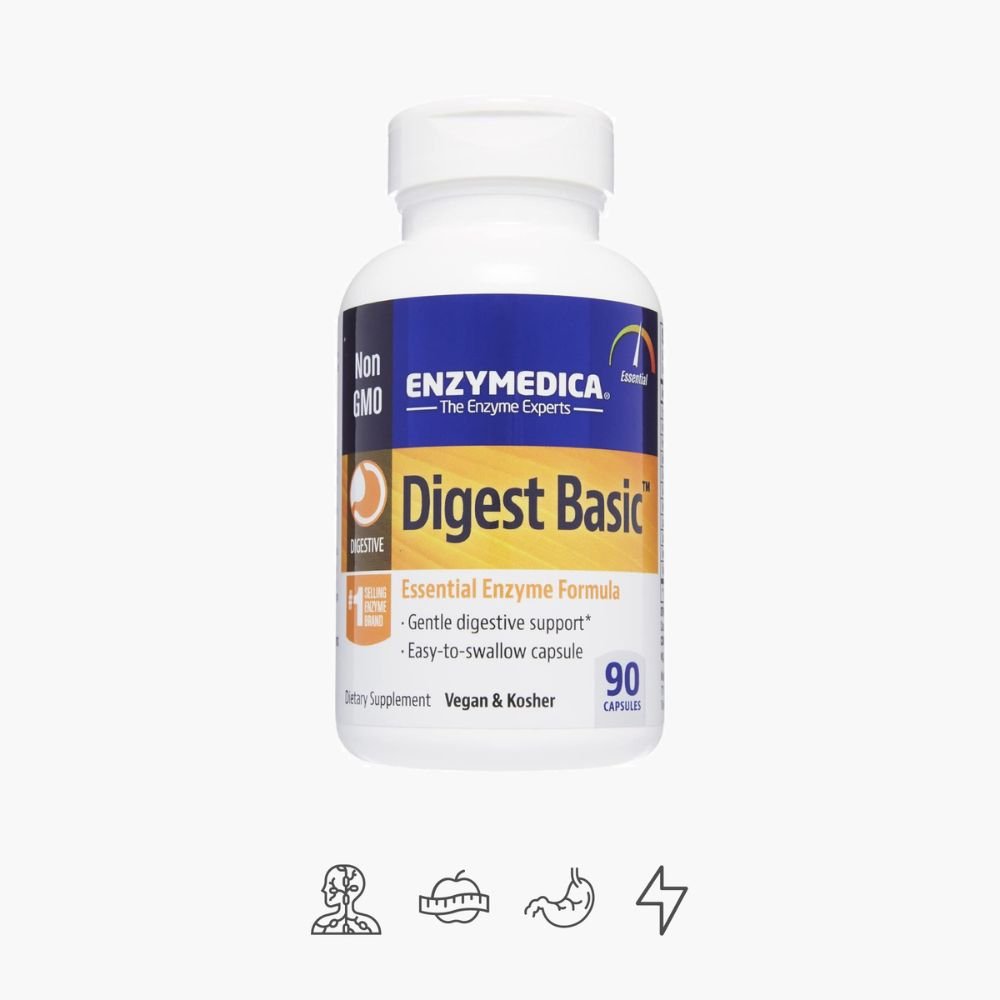


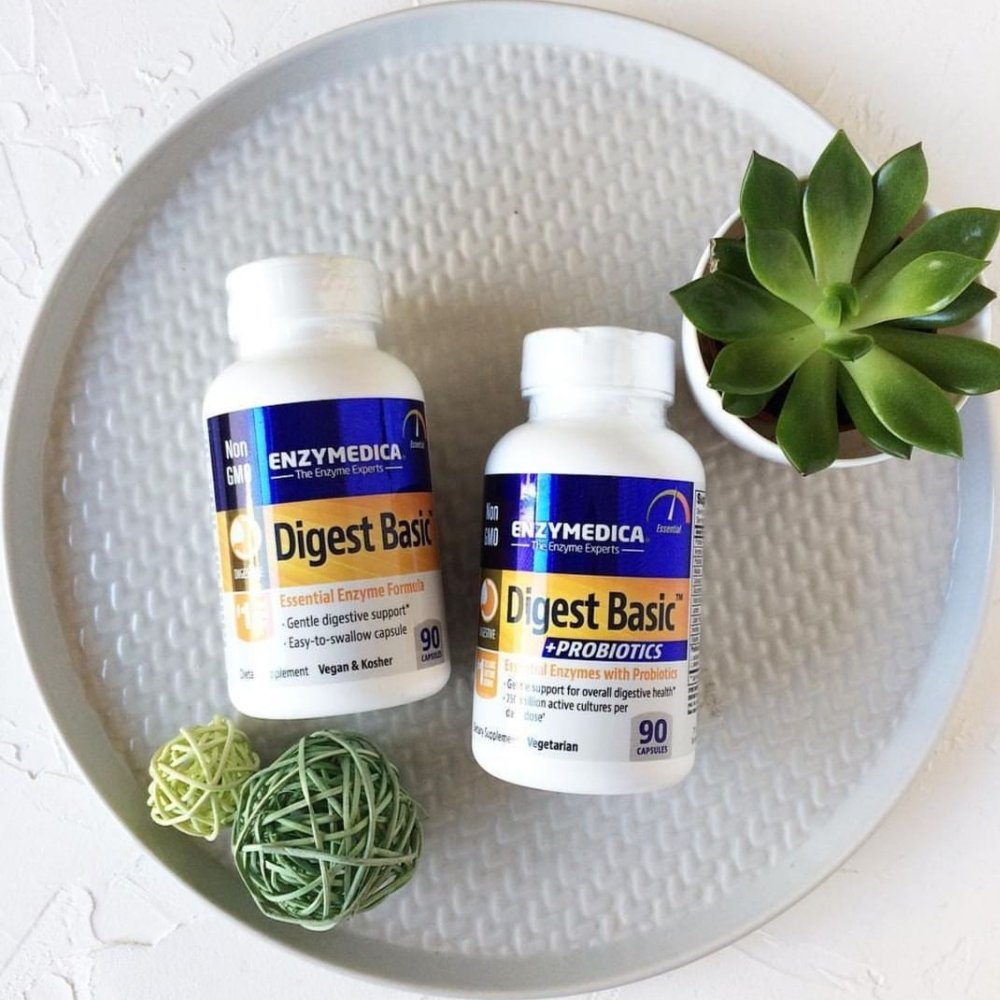





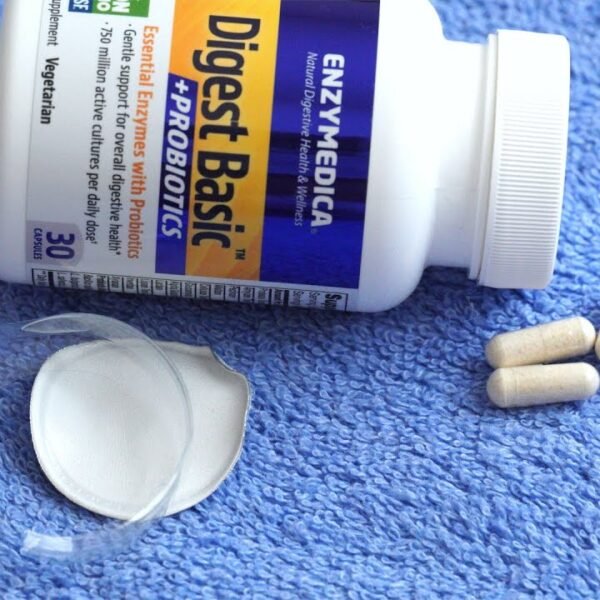
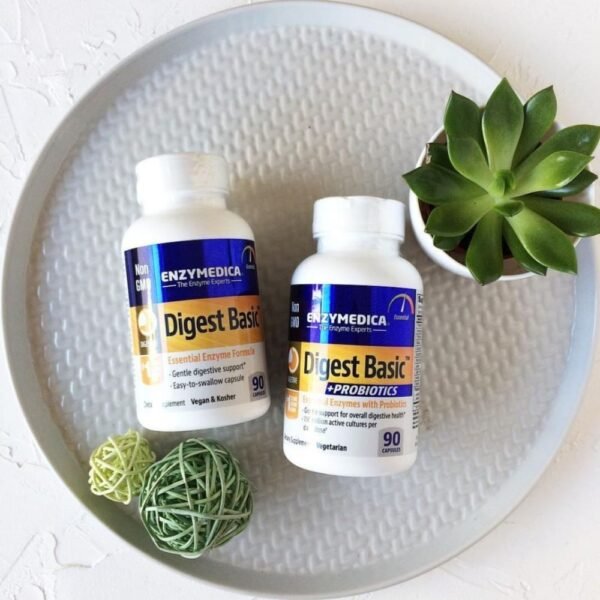



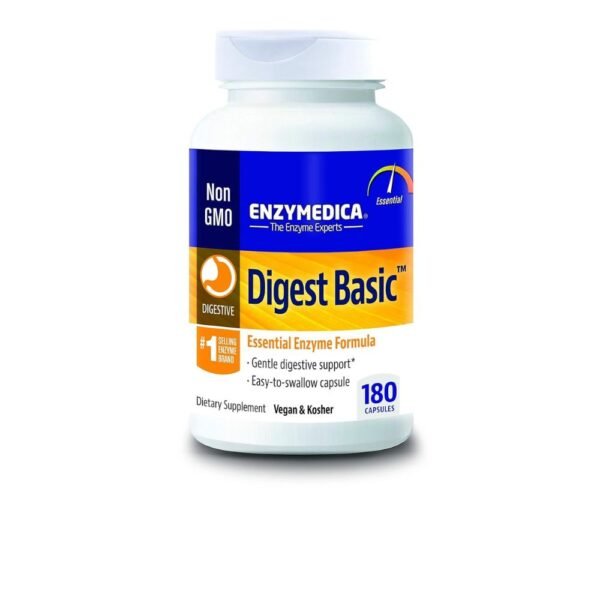
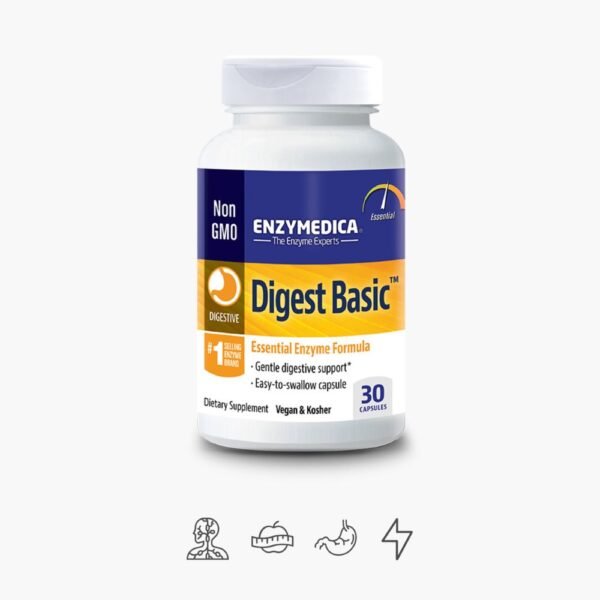

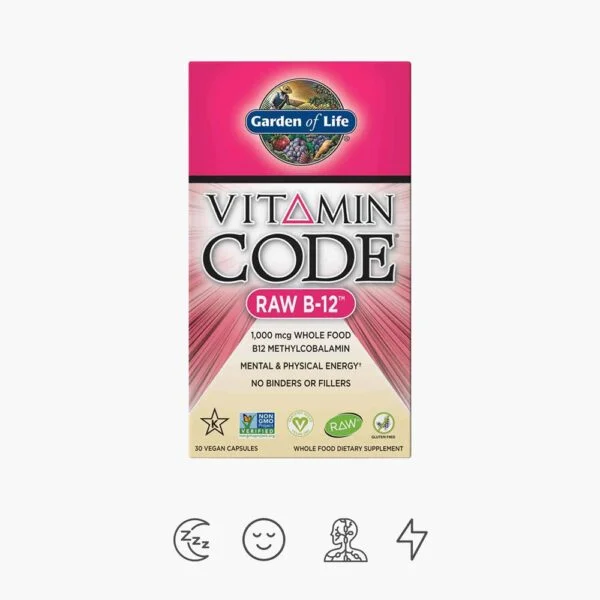

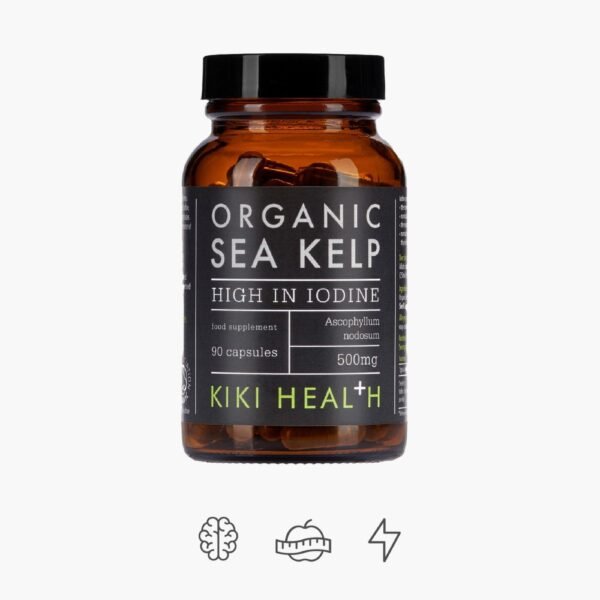

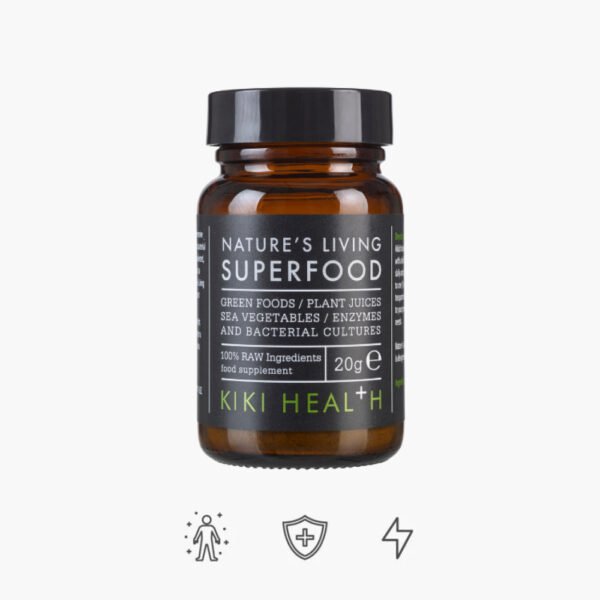


I bought these enzymes recently, regardless of the fact that I am currently being treated with antibiotics and taking anti-inflammatory drugs, the digestive system works much more calmly than before the use of enzymes. This is a really worthy product.